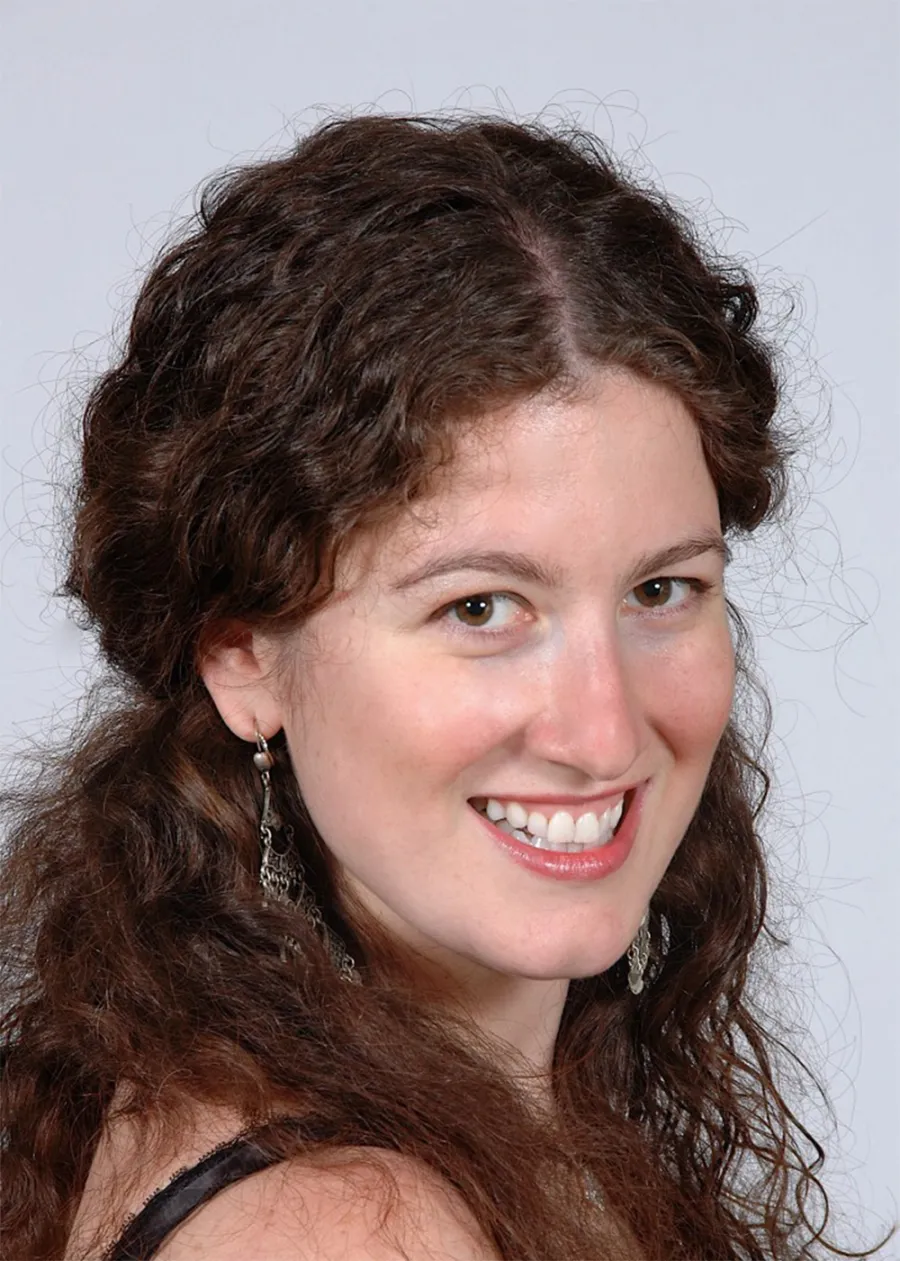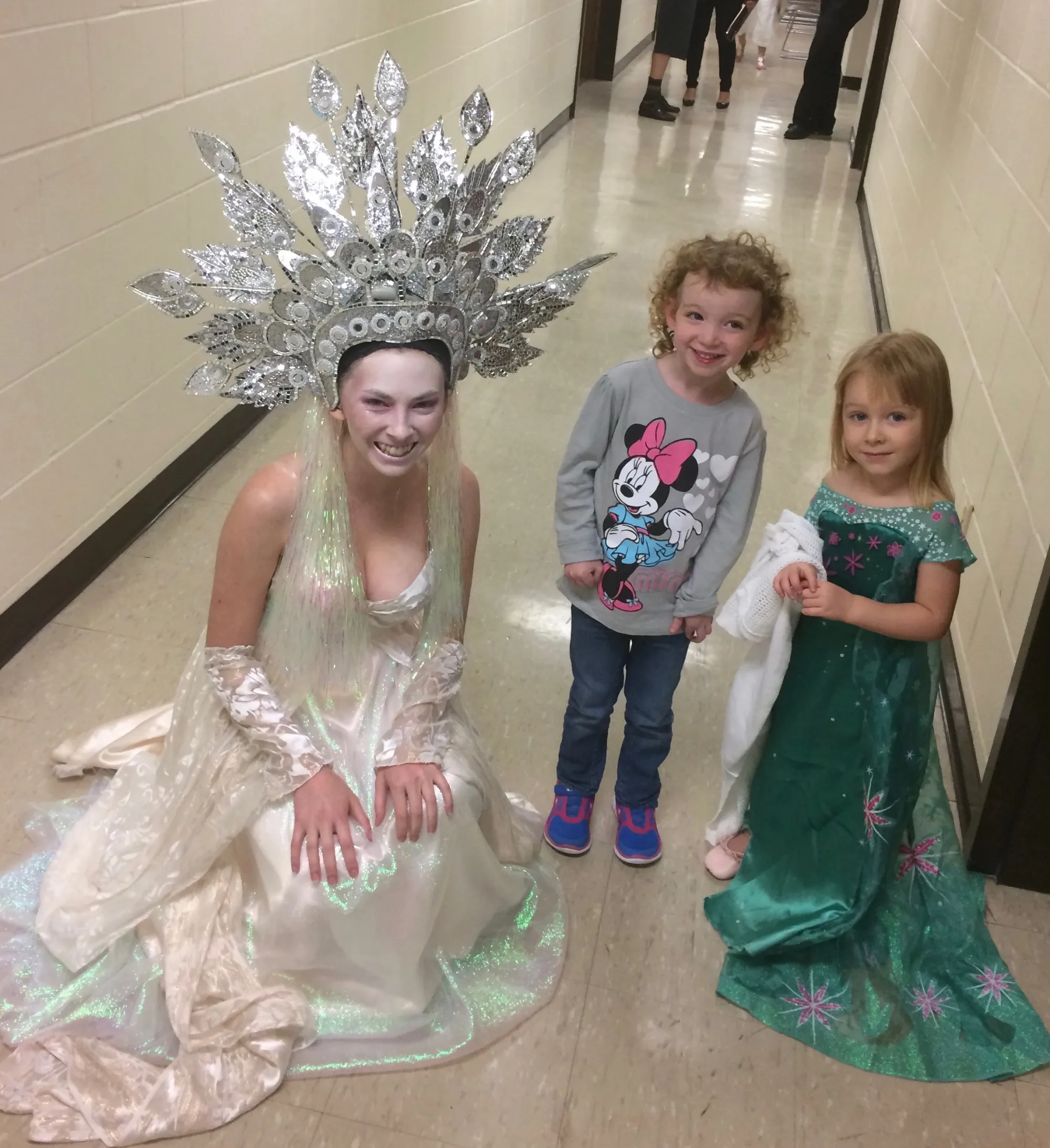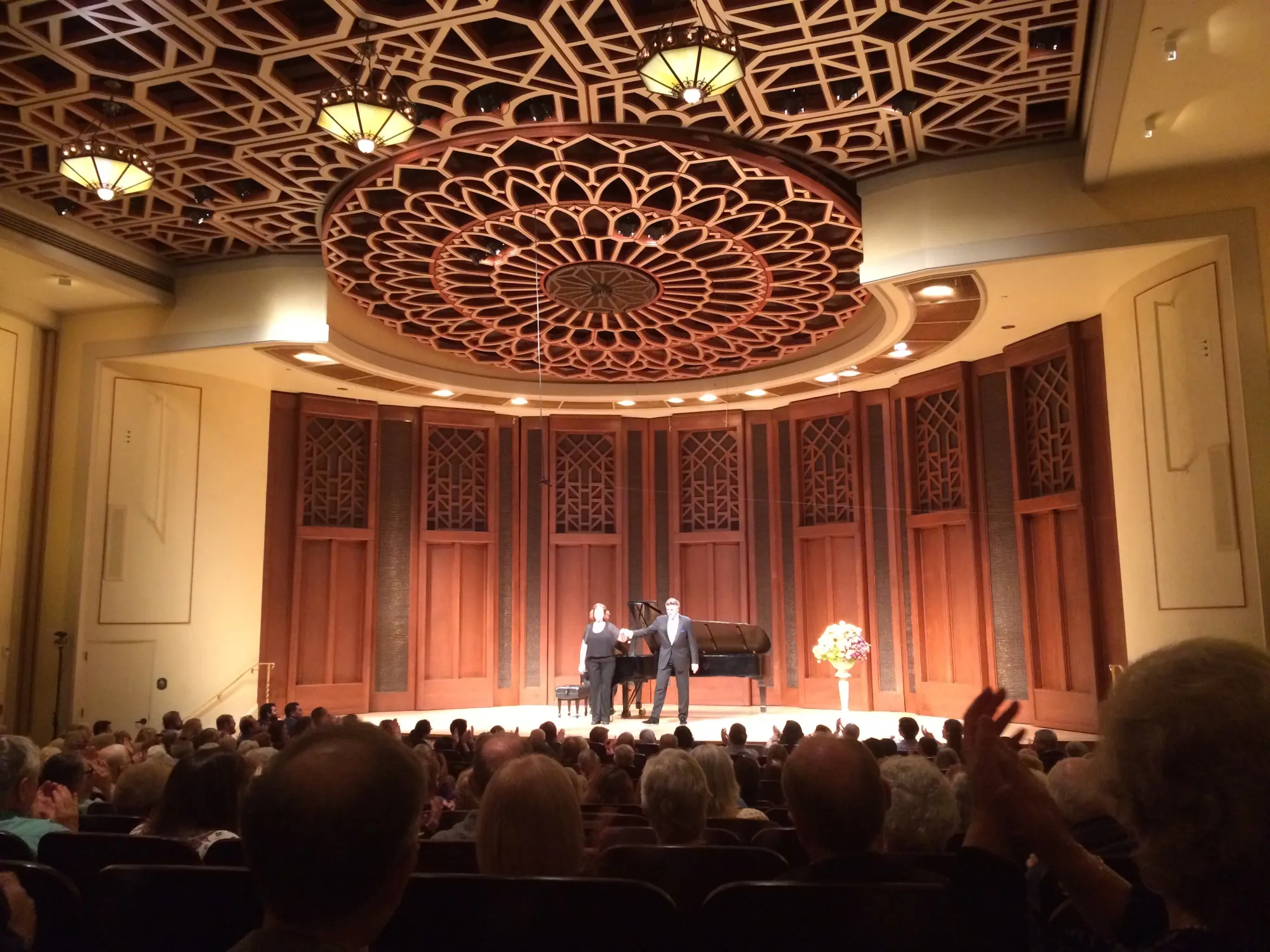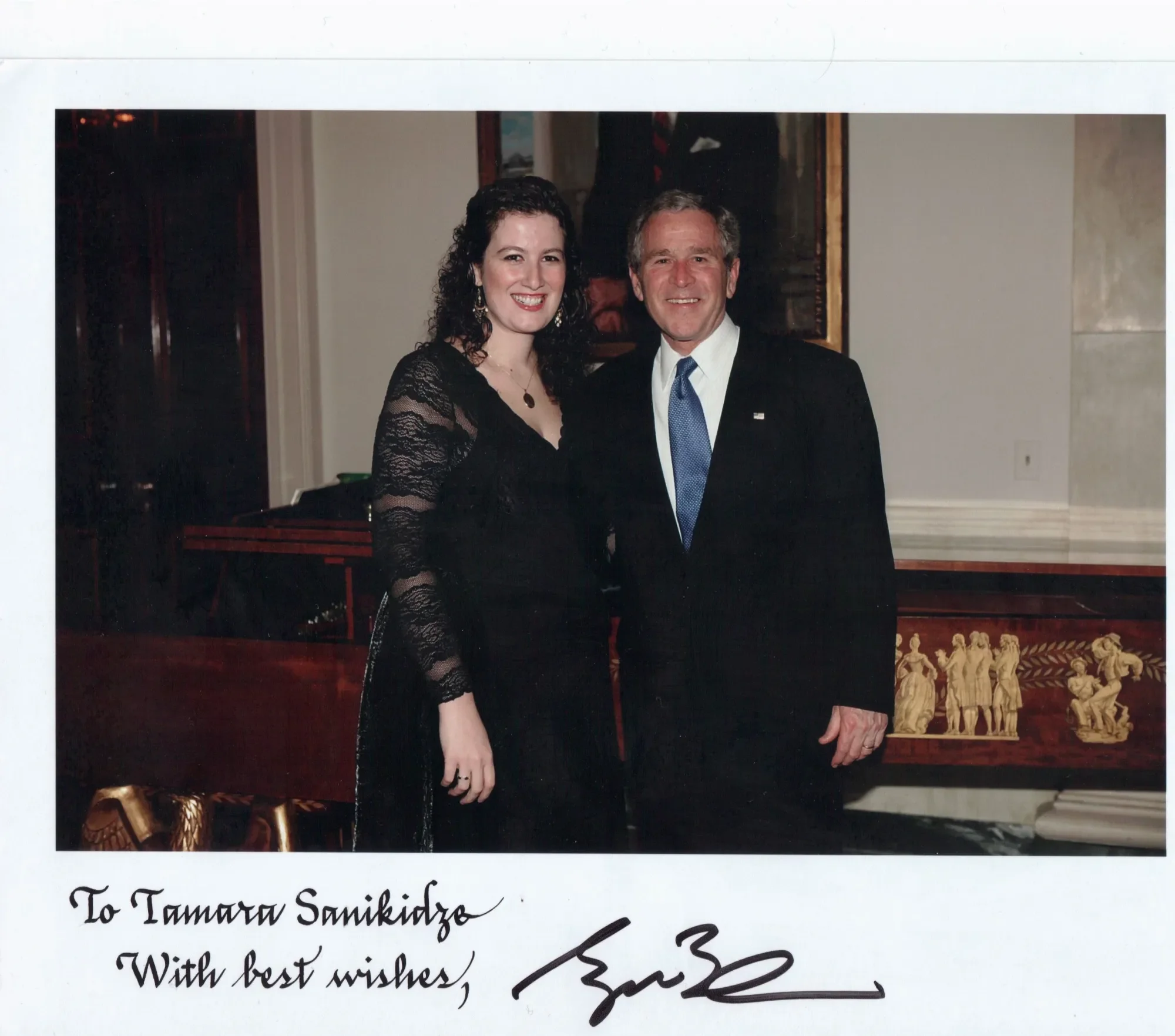February 23, 2017

Principal Opera Coach Dr. Tamara Sanikidze’s career as a solo and chamber pianist has earned her glowing reviews from notable voices in music criticism—The New York Times and The San Francisco Chronicle, among others—and taken her throughout the Republic of Georgia, Russia, Europe, Asia and the Americas.
As an active song recitalist she has partnered with such luminaries as Thomas Hampson, Nino Machaidze, Isabel Leonard, Quinn Kelsey, Marjorie Owens, Elizabeth Futral, Nicole Cabell, Leah Crocetto, Nadine Sierra and Amanda Majeski in New York City’s Carnegie Hall, Steinway Hall and other prestigious venues including the Kennedy Center in Washington, DC. By the special invitation, she has traveled to Beijing to perform with Mo. Plácido Domingo and also has performed at the White House for President George W. Bush and First Lady Laura Bush. Upcoming for her is a return to the San Francisco Opera for their 2017-2018 season, acting as a prompter for a production of Turandot and as an assistant conductor and coach for Wagner’s Ring Cycle.
On April 1, 2017 Dr. Sanikidze will have her first major faculty concert since joining the Butler School in 2015. Along with David Small, Associate Professor of Voice, they will perform a program featuring selections from Beethoven, Ewazen and Poulenc. Advance tickets are now available.
What is your earliest memory of music?
The sound of my mom’s students playing piano waking me up every morning of my childhood.
I was stunned to find out that your first performance with a professional symphony orchestra was at age eight. There must have been a great deal of preternatural maturity involved. Where you at all scared?
Thank you! I think there are two major factors here. My mother is a very famous and successful piano pedagogue in the Republic of Georgia where I grew up. Students fly from all over the world to study with her. As long as I can remember our house was filled with music, all sorts of music.
Even though my mom taught piano to hundreds of students, neither my sister Nino—who is a principal coach at the Los Angeles Opera Young Artist Program—nor I studied with her. We studied with her good friends, but she certainly was the most important influence on our development both musically and generally in life.
Another aspect is that my childhood (and some adulthood) was during Soviet Union times, so education was very specialized and focused. I started my musical education in “Special Gymnasia for Gifted Children” at age 5. I was admitted as a violin student and kicked out in just few months, for "lack of interest and talent.” The school admitted me again at age 6, this time in piano department. Something about finger-keyboard coordination clicked and made complete sense to me. As a result, in just a couple of years I had my first performance with an orchestra and have not stopped playing piano professionally since. I don’t think I would have this kind of early success if my early musical education and supervision was not so rigorous.
What about opera music—in particular—lights up your brain?
I grew up in Tbilisi, the capital of Georgia. Cultural life in Georgia and particularly in Tbilisi, historically, has always been beaming with amazing artists flown from all over the world, even during Soviet times. My parents were very much invested in exposing their three kids to art—every kind of art—as it was truly the only way you could breathe freely during those days.
We went to theaters, museums, operas and concerts almost every evening. As an aside: I have to mention that in those days the ticket prices were much more reasonable than they are now.
The apartment building where I grew up is located right behind the Tbilisi State Opera House. Nino and I spent our entire childhood looking into the windows of rehearsal and coaching rooms. Every day after school we listened to voice lessons, rehearsals, watched staging rehearsals and costumes being made. It was part of our childhood.
Also, when I was about 6 years old, my mom took me to see movie La Traviata with Placido Domingo and Teresa Stratas. I felt like Alice in Wonderland. I had never heard or seen anything this beautiful before in my life. I dragged my mother back to see this movie again, and again—at least 10 times—and every time I loved it even more. I even staged my own one-woman (or rather, one 6-year-old girl) version of La Traviata in my house and performed it tirelessly to anyone who would listen, which most often was my ever patient and loving sister Nino. Since then, singing has been soundtrack of all my life and I could not live without it as I could not live without air or water.
Decades later, I was VERY pregnant when I prompted Mo. Domingo in the Los Angeles Opera, and this was the way daughter was introduced to divine music and singing even before she was born. I am so happy to see that the passion of music lives in her little heart. She is so happy to attend rehearsals, listens to music with such interest, then we go backstage and visit performers. She is fascinated by the transformation from real life to a stage. Just last summer she was devastated when she saw a “Prince” on stage was just a “normal boy” backstage, but I explained that this was a magic of music a theater.

You play both solo and collaborative piano. Could you explain the mental (and possibly physical) shifts that must occur when a pianist performs jointly with one or more other artists?
Again, growing up in the Soviet Union created a very early education. Starting from 5th grade, I had lessons of vocal accompanying, instrumental accompanying and chamber music, as well as piano solo lessons. You could not graduate gymnasia without playing serious programs for solo, vocal, instrumental and chamber recitals on top of solo recital.
Later, in Tbilisi State Conservatory, I received a bachelor’s degree with 4 specializations – solo, vocal accompanying, chamber music and pedagogy. In a way, adapting to different methods of listening to different partners (singer vs string player, string player vs woodwind player, even high singer vs low singer etc.) has been required from me from very early age. I think at this point I am so used to it I could not play any differently. My body, ears and fingers instinctively adapt to a sound that my partner makes.
The most important thing is to be sympathetic to your partner and his or her physicality. I believe that a true collaborator has to really put themselves in their perspective partner’s shoes. This is why I encourage my collaborative students to sing in front of the class while I accompany them. I want them to truly feel what it takes to stand in front of the audience and project, to make music with their body. After this eye opening experience, I am convinced they will accompany their singers differently.
As an artist in performance, what is your relationship to the audience? I have heard some relate a palpable closeness, and others a pedestal-like remove.
I relate to my audience very intimately. I like to talk to them directly from the stage between the pieces. I like to make eye contact. I like to invite them to join us for a ride when we perform and hopefully be satisfied by the experience. I absolutely do not like a “pedestal-like” approach to performances.
How has your role as a music educator changed you as a musician?
It changed me—and is changing me daily—more than I could have ever imagined. As years go by (this is my 5th semester here in UT) I find out more and more about techniques of teaching. As I said, I grew up in the house of a superb pedagogue and watched her raise generation after generation of exceptional musicians. What is her secret? Other than really knowing how this instrument works, it’s the humility and the understanding that every student is going to be different.
It is a teacher’s responsibility to adapt to the way a student learns, not the other way around; I believe in this very strongly. Different students come from different environments. Some already have years of education, some sang only in church, and some are just starting to dip their toes in musical waters. I try to create an inspiring and encouraging atmosphere, and to plant the seeds of knowledge that will grow and blossom in their minds in time. I know it is cliché to say, but in teaching them they are truly teaching me. I could not be more fortunate then I am right now.

You are a well-traveled performer. Whether by aesthetics or different experiential factors, which is the most beautiful place you’ve ever performed?
It’s hard to say. I love performing, and I am so lucky that my passion for music takes me to all corners of the earth. I enjoyed making music in Aspen as much as I loved playing on the stage of La Scala. I was humbled to warm up my fingers on the piano in Budapest opera house as much as I was humbled to play on Carnegie Hall stage. Just to think of the people that walked these halls makes my hair stand up, even now.
The truth is that I would enjoy playing music in any place, because the music itself creates the most beautiful environment you could ever imagine; it takes you to the most wondrous worlds that do not exist in real life. During the seemingly endless wars in Georgia in 1980s and 1990s, music and theater was escape for me and many of my friends, but that is whole other conversation.
I will say that I am tremendously lucky to be invited to teach every summer at the Music Academy of the West in Santa Barbara, California—or as I call it, "Paradise on earth."
What general advice would you offer to someone that is just beginning their academic or professional career as a pianist?
First and foremost, really ask yourself, “do I love this music?” To do this well requires many sacrifices and a lot of time spent studying alone. One really has to be in love with voice and vocal repertory to devote as much as time and attention as it requires. With that in mind, it’s also important to surround yourself with people who will value your musical life. I am incredibly blessed to have unending support from my husband Norm, who fully understands and appreciates the sacrifices our passion requires.
Second, be ready to study for the rest of your life. Vocal repertory is vast, and there will always be new pieces one has to prepare. I have opera scores piling up on my beautiful Steinway here in my studio every week!
Being a student never ends, but to me this is a best part. We get to forever be the students and ambassadors of majestic music: Mozart, Verdi, Wagner, Beethoven, Stravinsky and all the great composers. Honestly, I could not think of a better way to live my life.


